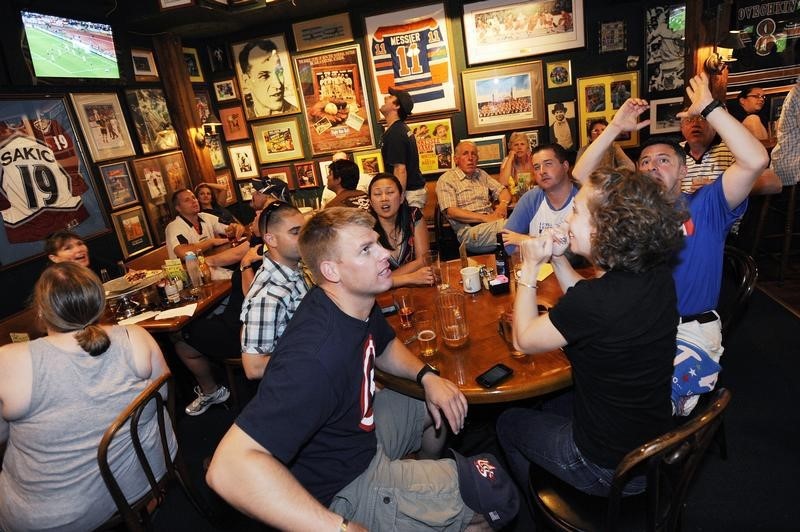By Larry Fine
(Reuters) - While analysts debate the fiscal sense of Sky TV paying more than $4 billion to broadcast live English Premier League matches, former CBS Sports president Neal Pilson advises them not to fret.
The retired executive speaks from personal experience when he predicts a happy outcome despite the amount spent.
"In the final analysis SKY and BT are probably going to be of greater value...because they have retained these rights," Pilson told Reuters in a telephone interview.
"I experienced that at CBS when we lost the NFL rights."
Pilson ruefully recalled losing the National Football League rights in 1993 to fledgling Fox Broadcasting Company, whose parent, Rupert Murdoch's 21st Century Fox, happens to own 39 percent of Sky.
CBS, who had televised NFL games for 38 years, were offering the NFL $250 million a year to renew their deal and network management balked at NFL's demand for $290 million.
Fox, which at that time did not even have a sports division, stepped in and offered $390 million a year and were awarded the four-year package of games.
"If I had won that argument I'd probably still be at CBS," said Pilson, now head of a sports consulting company whose clients have included the International Olympic Committee, NASCAR and the Kentucky Derby.
"I lost that argument and I retired. Affiliates left us, the male audience left us, our ratings during the week went down. The company was in a lot worse shape having lost the NFL."
CBS rectified the mistake in the next TV go-round.
"Four years later CBS went back to the NFL and said 'we'd pay any price to get one of the packages'," said Pilson.
CBS paid more than $4 billion over eight years to wrest away a slate of games that had been broadcast by NBC, and Fox renewed for eight years and $4.4 billion.
Rates have continued to climb, more nights of games have been added to bring in more broadcast partners and the NFL now rakes in some $6 billion a year in domestic TV rights.
DEVELOPING MARKET
The upward trend is also seen in the developing market for soccer in the United States.
The Major League Soccer season starting in March is the first of eight years under a new U.S. television deal that saw rights fees triple from the previous arrangement.
The new package, reported as $90 million a year, is shared by Fox Sports, ESPN and the Spanish language Univision network.
Orlando City's Brazilian chairman and majority owner Flavio Augusto da Silva is confident of continued growth.
"The next deal will be done and it will be even bigger. That is when I think you will start to see big changes in MLS," he said.
However, while the trend is positive, $90 million year is peanuts compared with the Premier League's domestic deal and miles behind other major sports in the United States.
The smallest of the 'big four' U.S. leagues, the National Hockey League, gets an average of $200 million a year for U.S. TV rights.
The Premier League does better on U.S. television than MLS, averaging around three times more in ratings, but big promotion is expected from ESPN and Fox Sports from this year on.
The arrival of more top players (Kaka, David Villa, Frank Lampard, Steven Gerrard) and new teams in big TV markets -- NYCFC, Orlando this year, a new LA and Atlanta team in 2017, and David Beckham's Miami team on the horizon -- could spur MLS growth as a domestic TV product.
As for the huge outlays to grab TV audiences, Pilson said there was a hidden value in major sports broadcasting with networks using the rights to sell other services.
"Keep in mind that these large companies that buy sports rights don't necessarily have to make a profit on the actual deal itself," he said.

"They're selling broadband and other programming that they promote with their soccer. They use it to further their entire business."